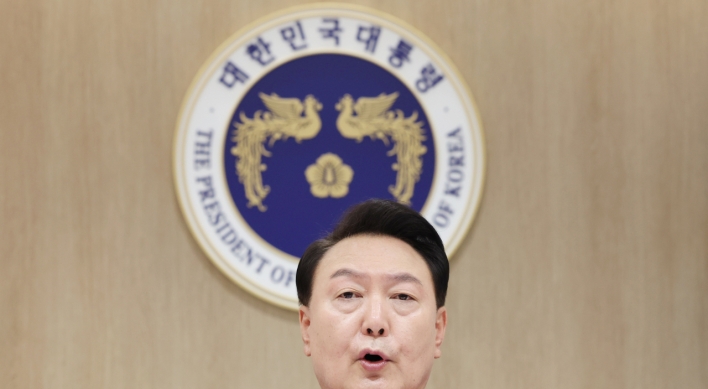[Editorial] Stewardship code
State pension operator’s exercise of shareholder rights should be free of political influence
By Korea HeraldPublished : Jan. 21, 2019 - 17:12
In July, the country’s state pension operator introduced the stewardship code, a set of principles intended to get institutional investors to actively engage in corporate governance to enhance shareholders’ interests.
The National Pension Service, South Korea’s top institutional investor and the world’s third largest, with 630 trillion won ($560 billion) in assets, holds more than 5 percent stakes in 297 local listed firms, including Samsung Electronics, SK hynix, Hyundai Motor and Posco.
The NPS has recently taken active steps toward applying the code, raising both expectations of enhanced rights for shareholders and concerns about inappropriate engagement in corporate management.
Specific guidelines unveiled last week to implement its stewardship code call for placing under intensive watch those companies whose dividends are too meager, who make excessive payments to executives or harm shareholders’ interests with illegal and improper business practices.
The state pension operator will initially hold informal consultations with such firms, which will be picked out from the 297 companies in which it has a stake of more than 5 percent, on measures to meet its demands. It will then send an open letter calling for actions if such discussions fail to bring results. Unless companies respond to the move, the NPS will ask them to select candidates it recommends as new executives or file lawsuits against the management.
Certainly, the pension operator has the right and obligation to raise its voice to increase the economic and social values of companies in which it has invested.
It might have due reason to actively exercise its shareholder rights over Korean Air, the country’s largest airline, and its holding firm, Hanjin KAL, which have been hit by a string of scandals involving members of the family that owns them. The NPS holds 11.56 percent and 7.34 percent stakes, respectively, in those businesses.
Earlier last week, the fund management committee of the NPS decided to let a subpanel of experts consider whether it would wield voting rights to press for its demands in the shareholders meetings of the two companies in question in March.
The pension operator’s application of its stewardship code might encourage investors who want domestic firms to increase dividends. Korean companies’ dividend propensity, which is calculated by dividing net profits by dividends, stood at 18.3 percent in 2017, far lower than 65.4 percent in the UK and 38.9 percent in the US.
Still, there are good reasons to pay heed to concerns about the possible negative effects of the state pension operator’s active exercise of shareholder rights.
What is most worrisome is that its actions might be swayed by political considerations. Companies out of favor with the government could be the primary targets.
President Moon Jae-in’s administration, which has pushed for what it calls an income-led growth policy that has increased costs for corporations, is not entirely cleared of doubts that it might be attempting to use the state pension fund to tame big businesses.
To prevent the possibility of corporate management being affected by the pension operator’s arbitrary exercise of shareholder rights, a system needs to be set up to ensure that its operation will be free of government influence.
Currently, the health and welfare minister heads the fund management committee, the highest decision-making body of the NPS, with four vice ministers seated alongside others. A former ruling party lawmaker now serves as chief of the pension fund’s board of directors. This makes it hard to expect the state pension operator to exercise its shareholder rights in a fair manner free of political influence.
The NPS needs to pay more attention to how to raise its investment returns instead of being preoccupied with applying its stewardship code.
Its investment returns recorded minus 1.5 percent last year, marking the first loss in a decade. Studies show that a 1 percentage point drop in annual returns will advance the depletion of pension funds by five years whereas a 1 percentage point increase will have the same effect as raising pension fees by 2 percent.
A politically charged push for the implementation of the stewardship code could hamper efforts to maximize returns on investments that hold the key to securing stable post-retirement life for people.
-
Articles by Korea Herald












![[KH Explains] How should Korea adjust its trade defenses against Chinese EVs?](http://res.heraldm.com/phpwas/restmb_idxmake.php?idx=644&simg=/content/image/2024/04/15/20240415050562_0.jpg&u=20240415144419)







